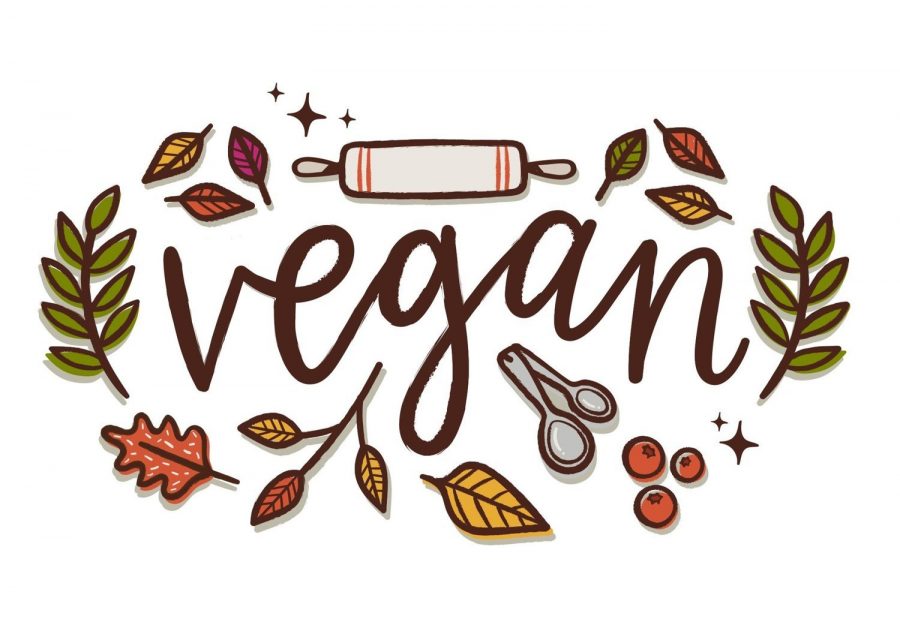Schulze cafeteria is ‘leafing’ vegan students behind
Visits to Schulze Cafeteria, or “the caf,” have become a constant disappointment to many vegetarian and vegan students who live on campus.
Now, you may not feel this way when you’re chowing down on “Fried Chicken Wednesday,” but for some students on campus like me, a pescatarian who’s struggling to support his transition to veganism, finding food on campus to eat can be stressful.
For clarification, pescatarianism is similar to vegetarianism, but they are not the same thing. A vegetarian diet restricts the consumption of red meat, poultry, fish and seafood.
The pescatarian diet follows the same rules except it still allows the consumption of fish and seafood.
Veganism, on the other hand, is defined as “a way of living which seeks to exclude, as far as is possible and practical, all forms of exploitation of, and cruelty to, animals for food, clothing or any other purpose,” by the Vegan Society, the oldest vegan organization in the world that also functions as a charity.
This means many vegans also live a vegan lifestyle in which they refrain from purchasing anything made from animals, such as fur coats or leather wallets.
The main reason I am currently only a pescatarian is because finding vegan options is virtually impossible on this campus.
This is the predicament of many students on campuses like ULM’s who aren’t of the 70 percent of college campuses now offering daily vegan options, according to PETA’s Assistant Press Coordinator, Brooke Rossi.
Some may say, “Well, just change your diet” or “Just don’t go to the caf if you have such a problem with it.” But that’s just not plausible for many students.
Some people who participate in these diets choose to for their health or for religious or moral reasons, so it’s unfair to penalize these students for just trying to live their lives.
Also, paying for food and groceries can be expensive, especially when students who live on campus are required to pay at least $1,570 for a meal plan. And when I say required, I mean required.
Every on-campus resident of the university must pay for a meal plan, regardless of their use of it.
This stinks. For junior kinesiology major Dashia Vance, moving off campus helped tremendously, because “the caf has very little non-meat options and on some days had none at all besides the everyday pasta and salad.”
The caf does indeed provide very few options for vegetarians and vegans and the ones that are provided are always the same.
For vegans, these include fruits, vegetables, hummus and salad. For vegetarians, cheese pizza and grilled cheese sandwiches.
A meal can hardly be made from these options. Not to mention the fact that these options contain nowhere near a proper amount of protein, but no one seems to care.
Sometimes, cheese pizza isn’t even available, or ham is added to the grilled cheese sandwich which prevents a vegetarian from enjoying the caf selections they have.
Why take away students’ only available food selections, especially when ULM’s dining services claim to “support the entire campus community and connect us all to a healthy lifestyle” through its Healthy for Life wellness education program?
The program’s website advertises that the American Cancer Society and the American Heart Association recommend eating plant-based foods to reduce the risk of chronic diseases, but doesn’t offer options to help students achieve this.
For example, at the Thanksgiving Lunch, vegetarian and vegan students’ only options were a couple of vegetables, including a “special” vegan butternut squash dish.
This really saddened me, because there are so many other things the caf could offer.
I take every survey opportunity given by dining services to suggest permanently adding beans and rice (without those repulsive sausage slices) or even tofu to the menu, but nothing seems to change.
Now, I could eat a salad at dinner every day, but I believe I and other students deserve (and pay) to eat more than just leaves.






